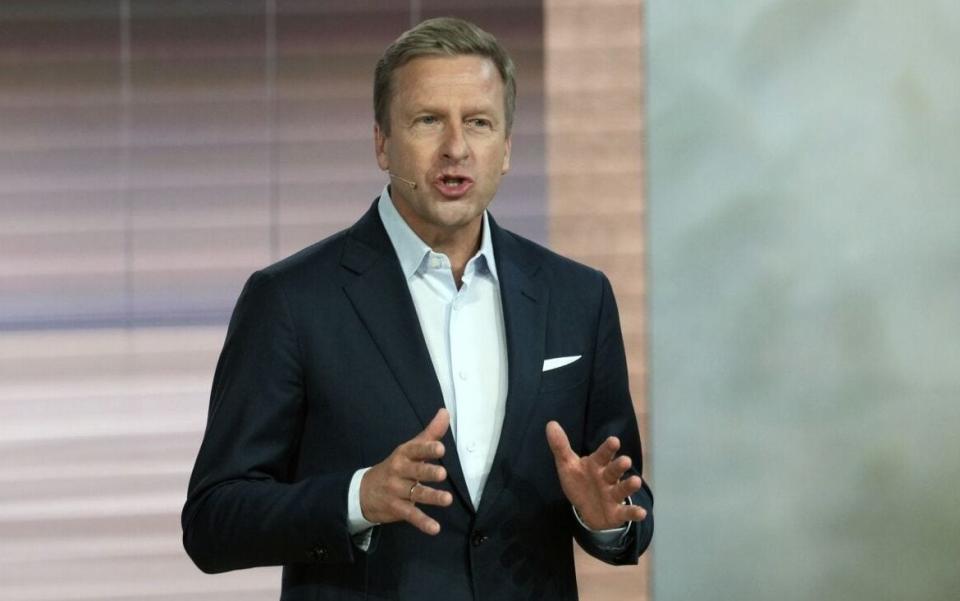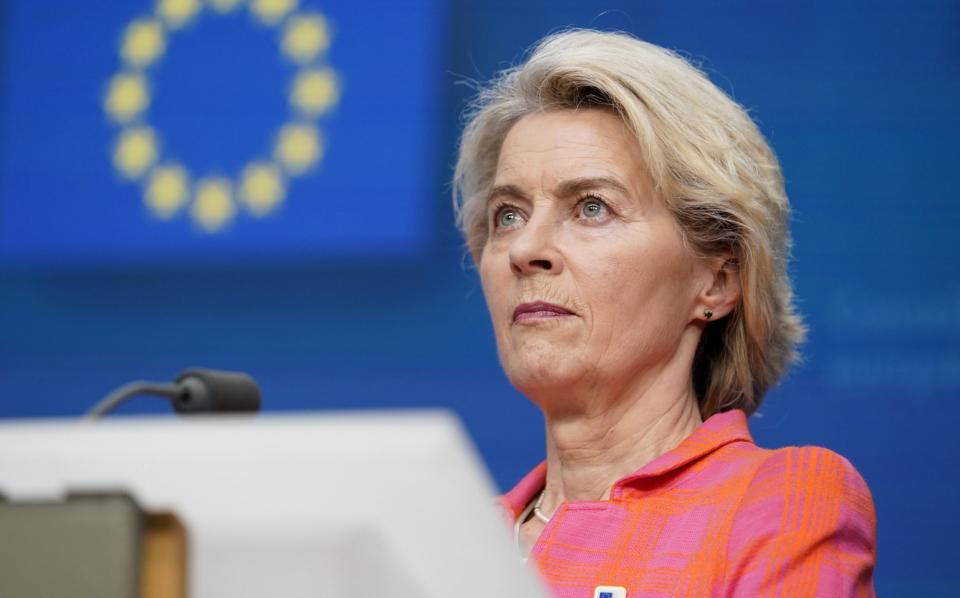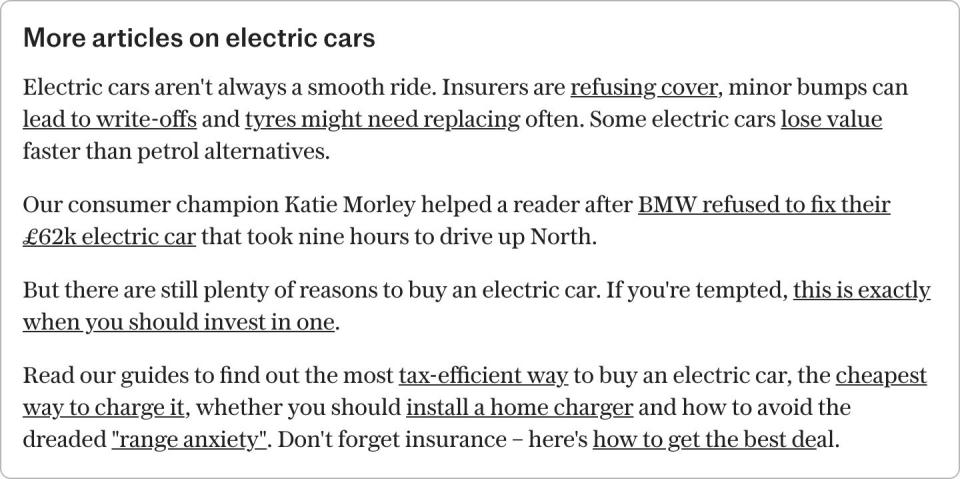BMW attacks EU tariffs on Chinese electric car imports

BMW has accused the European Union of protectionism as Brussels prepares to hit imported Chinese electric cars with a wave of tariffs.
Amid last-minute lobbying efforts to stop the duties, the German carmaker on Wednesday appeared to concede defeat as it warned the move would “heavily infringe the principle of free trade”.
BMW is opposed to the tariffs amid fears of a tit-for-tat crackdown on European exports to China, one of its biggest markets.
Oliver Zipse, chief executive of BMW, said: “The introduction of additional import duties leads to a dead end.
“It does not strengthen the competitiveness of European manufacturers.
“On the contrary; it not only harms the business model of globally active companies, it also limits the supply of electric cars to European customers and can therefore even slow down decarbonisation in the transport sector.
“Such measures heavily infringe the principle of free trade, which is also propagated by the EU.”
A BMW spokesman later admitted the company’s claim that tariffs had been confirmed was inaccurate, but added that an announcement from the EU was imminent.
Unless there is a diplomatic breakthrough with Beijing, the European Commission has said it plans to introduce provisional duties on Chinese electric car imports from Thursday, July 4.
The criticism came as EU member states debated whether to support the tough measures in a formal vote later this year.
The European Commission last month said it was minded to hit China’s electric car brands with extra tariffs of up to 38pc after an investigation concluded the country’s industry had benefited heavily from “unfair” state support.
On top of the 10pc duties already charged on electric vehicles (EVs) from outside the bloc, the commission proposed an extra duty of 17.4pc on cars made by BYD, 20pc on those made by Volvo owner Geely and 38pc for those of MG owner SAIC.
Other Chinese carmakers face extra duties of 21pc or 38pc, depending on whether they cooperated or refused to cooperate with the EU’s investigation. The commission said Tesla, which makes electric cars in China and exports them to Europe, may get its own individual rate.
Its investigation found “the entire BEV [battery electric vehicle] value chain is heavily subsidised in China, and that imports of Chinese BEVs presented a threat of clearly foreseeable and imminent injury to EU industry”.
EU member states will take an advisory vote on the tariffs in the coming weeks, followed by a formal vote in October.
Ahead of those polls, countries have been wavering over whether to support the extra duties amid a backlash from China – which has threatened to retaliate with tariffs of its own – and warnings from German and its car makers that they will ultimately backfire.
France, Italy and Spain are among countries that have strongly backed the tariffs. Spain’s economy ministry said: “Europe must defend itself if our companies are harmed and do not compete on equal terms.”
But the VDA car lobby group, which represents brands including Volkswagen, BMW and Mercedes-Benz, warned the German automotive industry would end up being hit hardest.
It noted that China was the largest destination for exports from German car makers, adding: “Chinese countermeasures could severely affect the European economy.”
The row came as Germany blocked the sale of a gas turbine business to a Chinese buyer on Wednesday, after the Bundestag invoked national security concerns.
Concerning a deal for MAN Energy Solutions’ unit, Berlin moved to veto the deal in the latest sign of cooling tensions with Beijing.
BMW’s protest comes as European Union lawmakers call on Brussels to weaken a 2035 ban on new petrol car sales, in the latest blow to the bloc’s net zero agenda.

Members of the centre-Right European People’s Party (EPP), the biggest grouping in the European Parliament, are preparing to challenge the policy in the wake of last month’s elections.
A draft proposal by the party pledges to revise “the rules for CO2 reduction for new cars and vans to allow for the use of alternative zero-emission fuels beyond 2035”, according to Reuters.
Any move to weaken the net zero car rules risks isolating Britain, with Sir Keir Starmer’s Labour Party – which is on course to win Thursday’s general election – currently pledging to bring forward a ban on new petrol cars to 2030.
No further details were set out by the EPP but the suggestion is likely aimed at providing a lifeline for combustion engine cars via carve-outs from the 2035 ban for so-called e-fuels, which are synthetic fuels that emit no carbon dioxide.
The European Commission has already pledged to set out a route for e-fuels to be used post-2035 after Germany warned earlier proposals would hurt its domestic car industry.
The EPP said it also wanted to allow development of “cutting-edge combustion technology”.
Its proposals will pile pressure on Ursula von der Leyen, the president of the European Commission, who is seeking to win support from the European Parliament amid a recent surge by Right-wing parties.
Her job has become harder following a row with Giorgia Meloni, the Italian prime minister, which has weakened her support among European MPs.
The EPP won the biggest share of any group in last month’s European Parliament poll with 188 out of the total 720 lawmakers, cementing its influence in the assembly.
At a meeting in Portugal this week, lawmakers from the group are discussing their aims for the parliament’s latest five-year term.
They are pursuing the policy change against the backdrop of slowing electric vehicle sales in Europe.
Official figures revealed that sales for new electric cars fell by 30pc in Germany in May, which led to a broader fall of 12.5pc across the Continent.


 Yahoo Finanzas
Yahoo Finanzas 